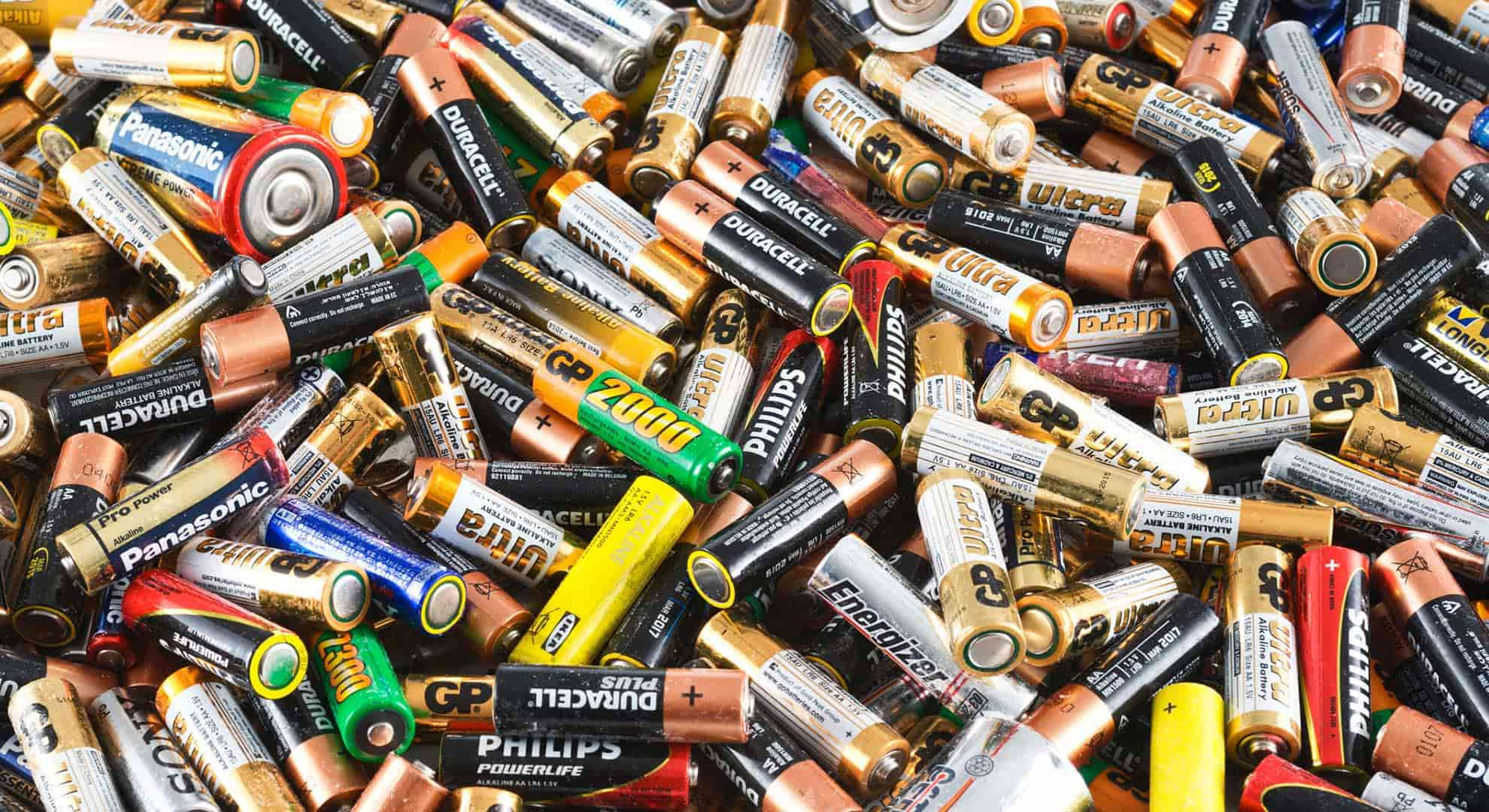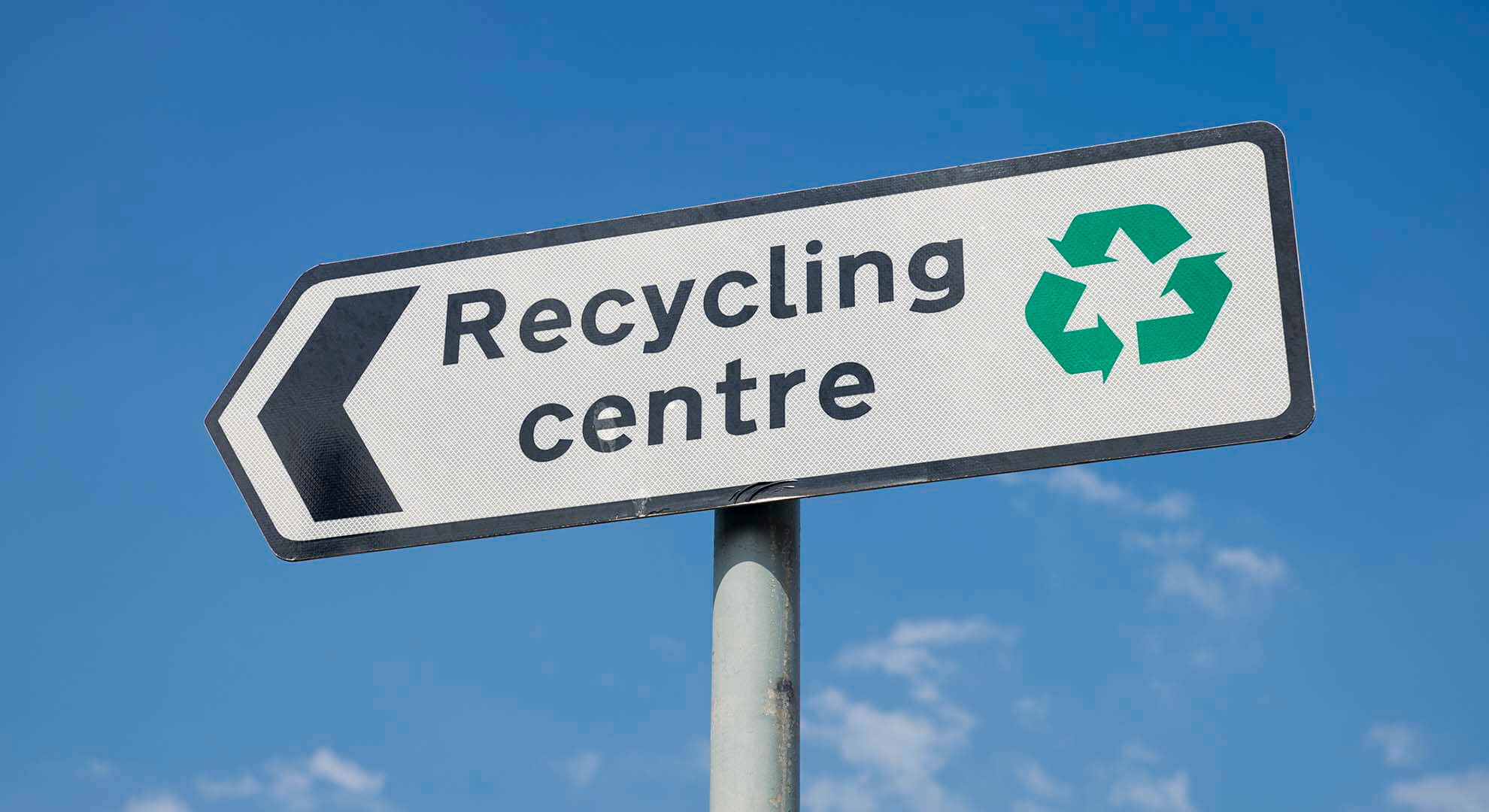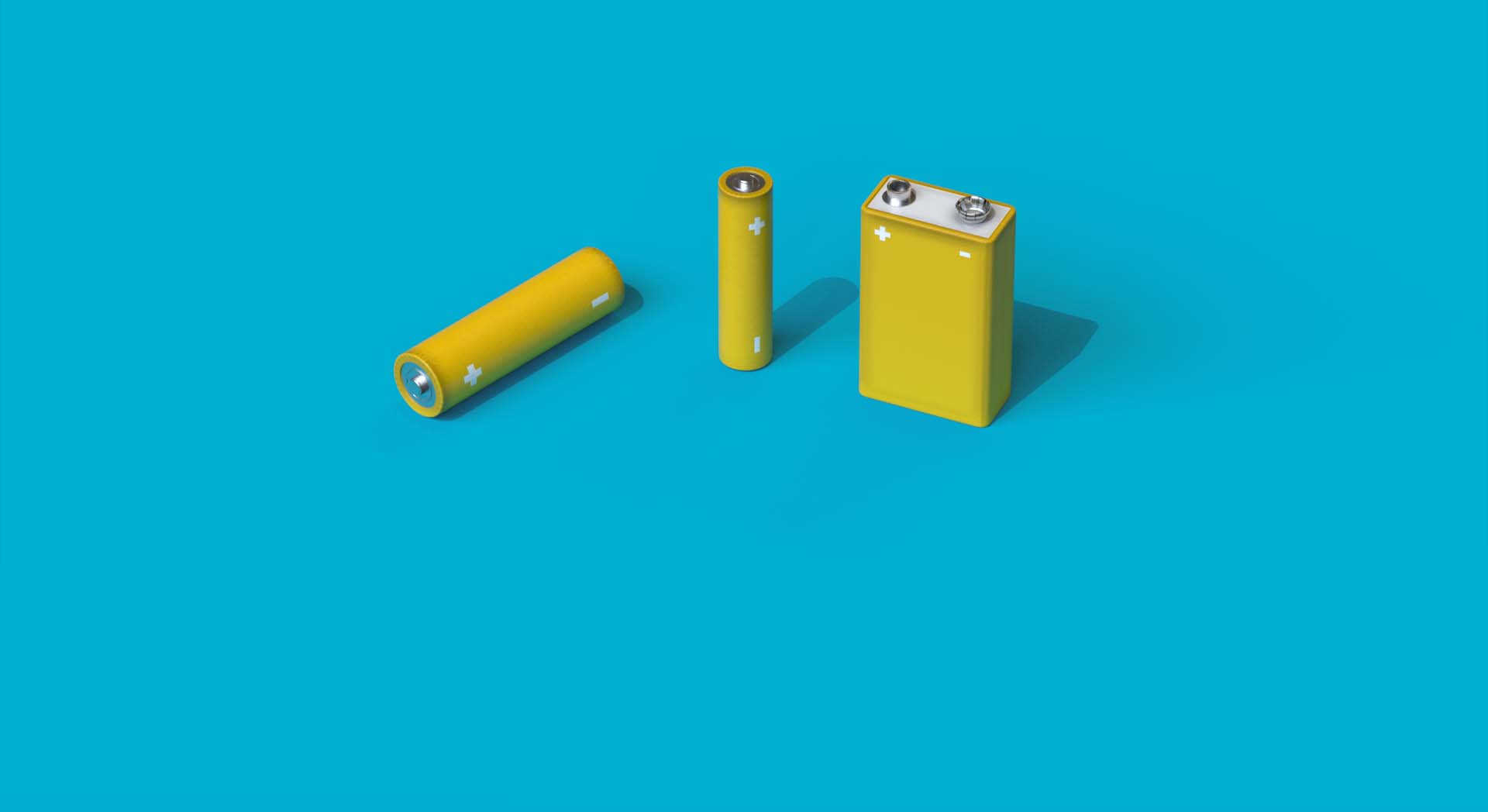
What to do with batteries?
If you’ve ever come across leaking batteries in a device you’ve not used in ages, you’ll know that old batteries left to fester get pretty toxic. We don’t want that awful yellow stuff getting all over our lovely environment do we?
Batteries are found in SO many of the gadgets and gizmos that we use in our daily lives, but how can we safely dispose of them when they’ve come to the end of their useful life?
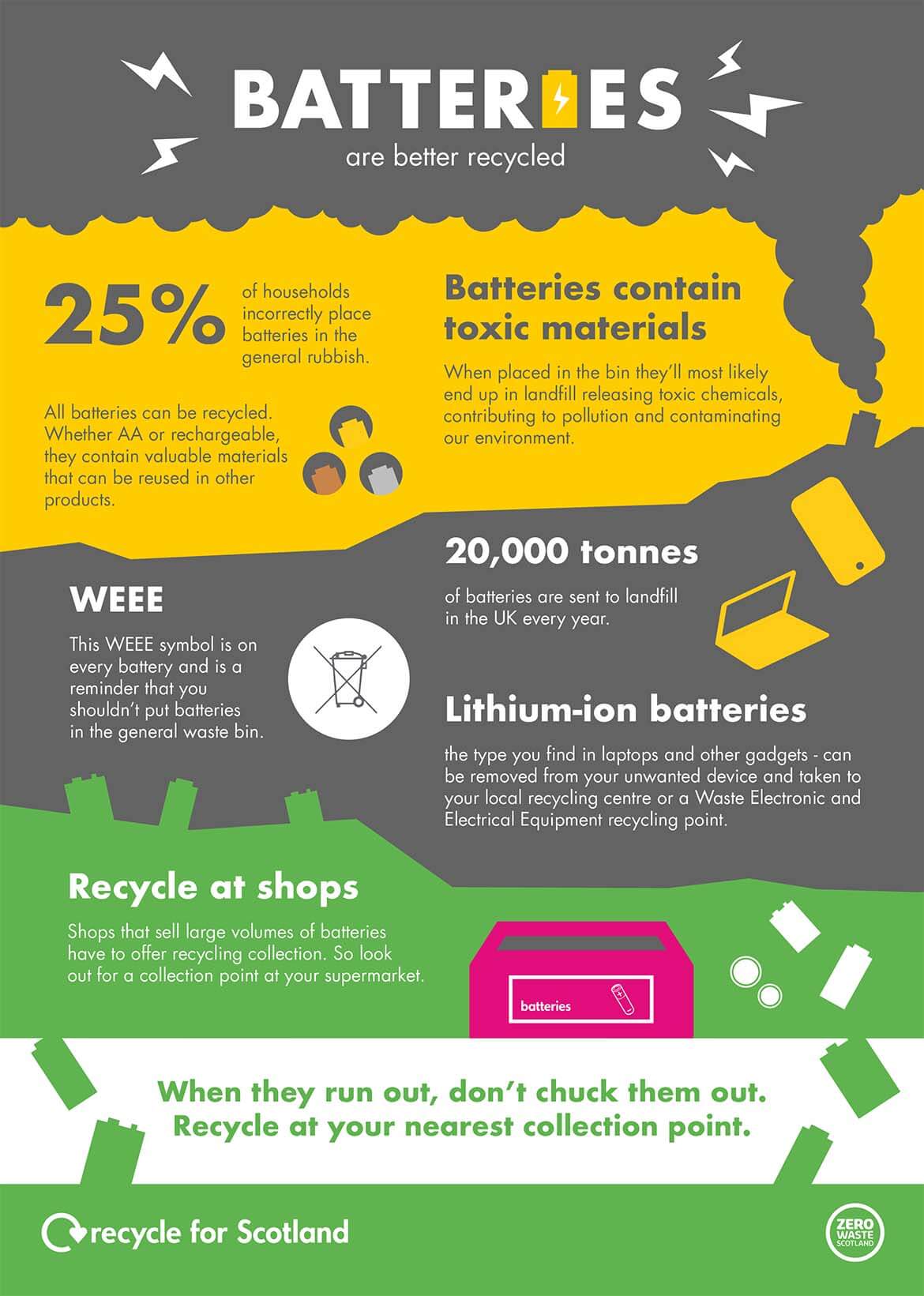
Household recycling collection
Batteries are not accepted via household recycling collections however they can be recycled at your local recycling centre or nearest battery recycling collection point found in most supermarkets.
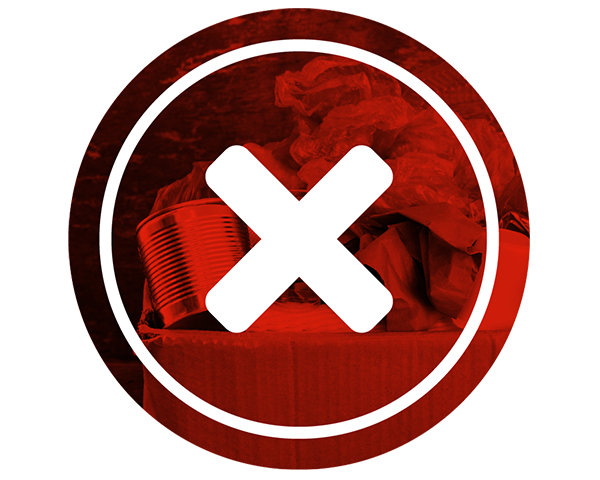
Household waste recycling centre (HWRC)
Household batteries are accepted for recycling at your local recycling centre.
Lithium-ion batteries, the sort you find in laptops, tablets and other gadgets, should be removed from your unwanted device if possible and deposited alongside WEEE items.
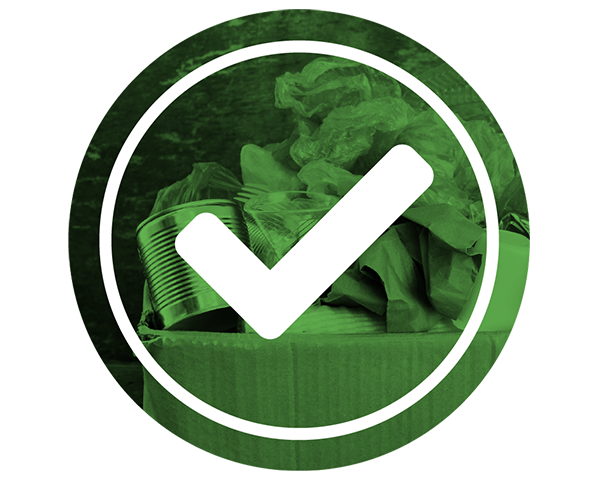
Other recycling collections
Recycling batteries is simple, convenient and available in more places than you may realise.
Shops that sell more than 32kg of batteries a year (that’s around 345 four-packs of AA batteries) have to provide battery recycling collection facilities in-store.
This means there are now lots more places to take your old batteries for recycling. If you can't see a collection box, ask the shop assistant if they have one - sometimes they keep it behind the counter, especially in smaller stores.

How are batteries recycled?
Batteries contain valuable metals that can be reclaimed and reused in other products.
Cobalt and lithium are two resources required to manufacture batteries and are seen to be in critical supply as demand increases. So it’s important to recycle all batteries whether they are everyday double AA’s or a rechargeable battery that is part of an electrical device.
Batteries should not be put in general waste. When thrown in a bin, batteries dangerously end up in landfills. As they decompose, hazardous elements from the metals are released into the environment contributing to water and air pollution.
If electrical products are disposed of with batteries still inside, they can potentially cause battery fires.
What can you do?
You’ll see the crossed-out wheelie bin symbol on every battery which means do not dispose of in your wheelie bin.
Collect used household batteries in an empty tub and once full take to a battery recycling collection point.
Use rechargeable batteries wherever possible - you can even buy a solar-powered recharger!
Plug electrical equipment into the mains electricity when available.
Try to buy appliances that use renewable energy - a wind-up radio or torch, dynamo bicycle lights or a solar-powered calculator.
Recycling is constantly evolving and changing so check back for updates or try our recycling locator to find out what you can recycle at home and where you can recycle or pass on unwanted items in your local area.

